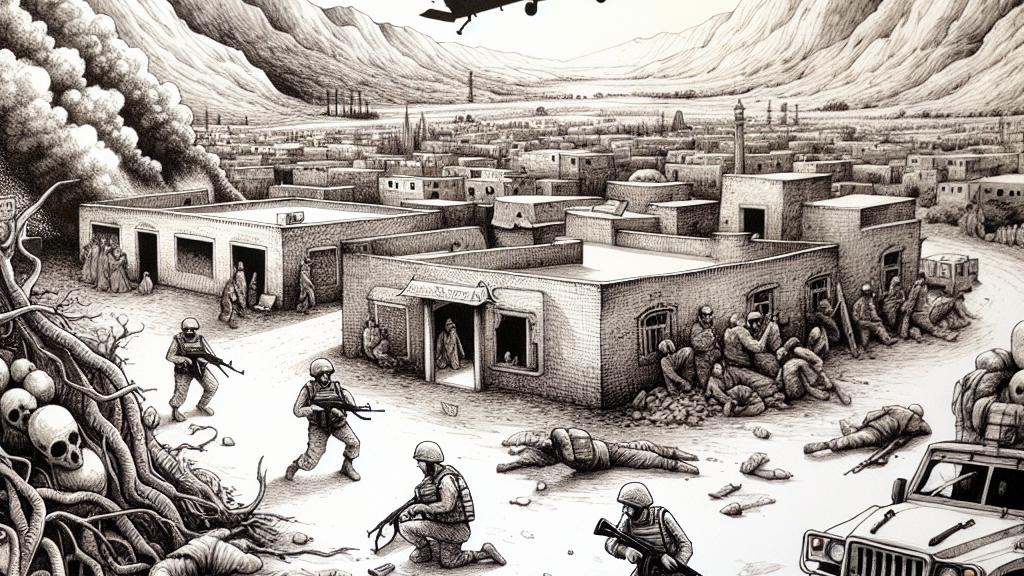Tragic Turmoil: Soldier's Life Lost in Khyber Pakhtunkhwa Attack!
Overview
- Courageous soldier kills; four others wounded in a shocking terrorist ambush.
- Attack occurred in Bajaur district near the Afghan border, highlighting deep-rooted conflicts.
- Surge in militant activities provokes swift military responses to protect security forces.

Recent Attacks: A Troubling Reality
On September 11, 2024, Khyber Pakhtunkhwa became the backdrop of a tragic incident that shook the nation—a soldier lost his life, and four others were wounded in a chilling terrorist ambush. This harrowing event unfolded in Bajaur district, a region steeped in tension due to its close proximity to Afghanistan. As bullets flew through the air, the grim reality of ongoing unrest linked to the Tehrik-e-Taliban Pakistan (TTP) was laid bare. Picture the scene: a once-bustling area now echoing the stark sounds of gunfire, transforming everyday life into a haunting tableau of fear and conflict.
Swift Military Response Amidst Rising Threats
In the wake of this tragic attack, the Pakistani military's response was immediate and fierce. Just days before, they had thwarted a potentially devastating strike on a Frontier Corps facility, showcasing their commitment to national security. In this previous encounter, four suicide bombers were neutralized—a testament to the bravery and vigilance of the armed forces. Each of these confrontations serves as a crucial reminder of the stakes at hand; lives hang in the balance, and security is fragile, especially as groups emboldened by the Taliban's reign in Afghanistan launch relentless assaults. The military's resolve is a shield against the storm brewing on the horizon.
The Broader Implications of Ongoing Violence
Moreover, the violence we witness is more than simply a series of attacks; it is indicative of a larger, unresolved struggle against militant factions gaining ground since the Taliban's resurgence. The military's repeated calls for Afghan authorities to strengthen border management unveil a sense of urgency that is hard to ignore. Imagine this ongoing conflict as a chess match, fraught with tension where each move could mean life or death for countless individuals. As the security forces continue to battle these threats, the profound impacts on local communities and national stability become increasingly evident. The stakes are high; each confrontation sows seeds of fear and uncertainty, echoing through the lives of families caught in this turmoil.

Loading...